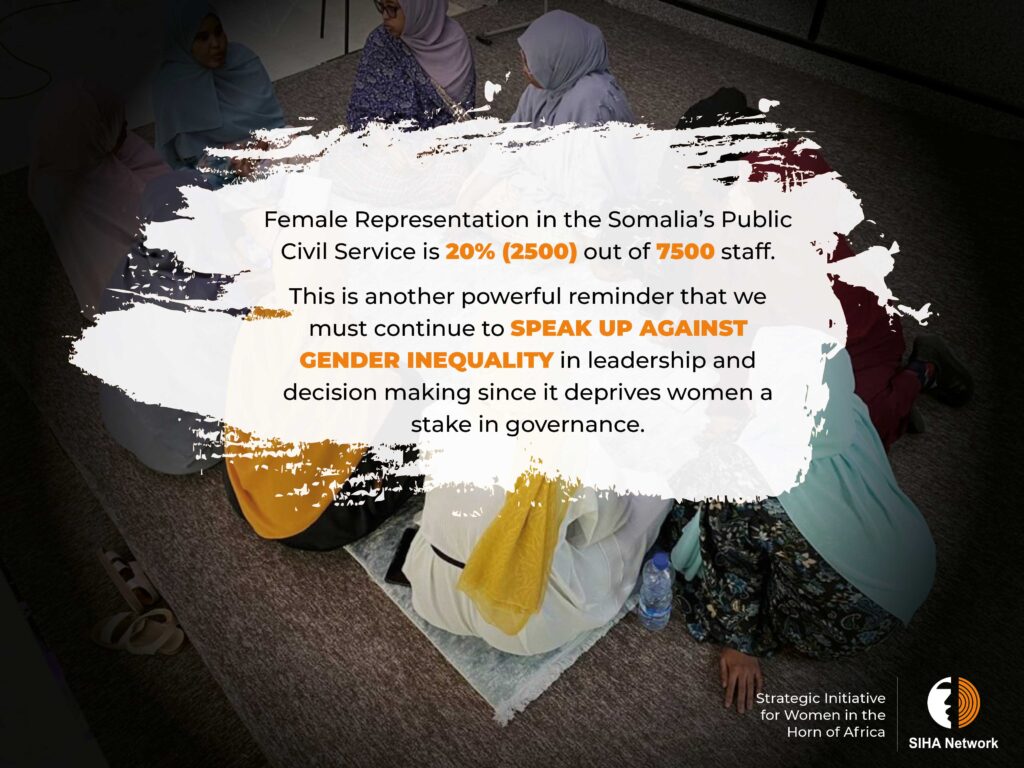
In 1975 significant strides were made globally in advancing women’s rights, and Somalia was no exception. That year was a good year for Somali women and around the world as the United Nations designated it as International Women’s Year, culminating in a world conference in Mexico City that focused on the status of women. Somalia aligned with this global momentum by taking a progressive measure and enacting the 1975 Family Law, which marked a critical step toward gender equality in the country. This legal advancement reflected the country’s commitment to improving the lives of women and ensuring their rights were protected and promoted.
The progress in Somalia continued, and just two years later, in 1977, the Somali Women’s Democratic Organization (SWDO) was established by the Somali government. This organization was created in honor of Hawo Tako, a courageous female member of the anti-colonialist Somali Youth League who was killed by Italian forces in 1948. The SWDO became a symbol of the ongoing struggle for women’s rights in Somalia and highlighted the nation’s dedication to empowering women, inspired by the memory of those who had fought for freedom and justice.
The feminist movement in Somalia has made significant strides in attaining gender equality however despite the hard-earned gains, there continues to be anti-gender backlash from individuals and institutions that are established under a patriarchal foundation. Policies and laws designed to protect the rights of women and girls have been repealed, given problematic names, subject to contentious debate, or have been shelved at various policy levels.
The recent decision by Somali Prime Minister Hamza Abdi Barre to appoint a military general, Bashir Goobe, as the new Minister of Family and Human Rights on July 27, 2024, and change the name from Ministry of Women human rights development to Ministry of Family and Human Rights Development was a deeply concerning move that we as SIHA Network view as an anti-gender act. The removal of the term “women” from the ministry’s portfolio was especially shocking, as it symbolically diminished the focus on women’s issues in a country where women’s rights are continually contended.
Compounding this troubling development, just days before his ministerial appointment, General Bashir Goobe was sworn in as a Member of Parliament after his wife resigned from her position. The fact that both the ministerial role and the parliamentary seat—positions that could have been occupied by women—were taken over by General Bashir underscores a troubling pattern of sidelining women in Somali politics and decision-making processes.
It is disheartening to note that the representation of women in the Council of Ministers, initially a modest 12% with 9 out of 75 members being women, has further declined. The recent loss of the Minister of Women and Human Rights Development, along with one state minister (Minister of public works), has reduced the number of women in the council to 7% from 9%. This setback underscores the ongoing challenges women face in achieving equal representation in leadership roles and highlights a critical need for renewed efforts to ensure that the progress made in women’s rights and representation is not eroded.
We therefore call for urgent action to address the erosion of women’s representation and rights in Somalia.
Recommendations
For the Government of Somalia to:
- Ensure that women constitute at least 30 percent of participants in decision-making spheres across local and national government institutions since they are the foundation of lasting peace and stability.
- Scale the full implementation of the National Action Plan, for Women’s Participation to promote gender equality and inclusive democratic processes and participation of women in the government of Somalia.
- Respond to women’s and communities’ demands to amend the legal framework that guarantees women’s and girls’ protection and access to justice.
- Ensure that institutions mandated to promote the rights of women and girls are led by women and allocated sufficient resources.
For Civil Society Organizations to:
- Coordinate collaborative efforts with key stakeholders at the grassroots level to ensure the protection of women and girls in their communities including Imams traditional leaders and community leaders.
- Engage in collaborative advocacy efforts to amplify the importance of gender equality and collaborate with governments to fulfill their gender equality commitments.
- Create awareness of the importance of women’s human rights utilizing social media, radio, television, and print to reach a broad audience and showcase positive stories about gender equality and its benefits for society.
Signatories
- Ifrah Foundation
- Iniskoy Protection and Development Organization (IPDO)
- Marginalized Group Network (MAGAN)
- NAGAAD Network
- Somali Women Advocacy Association (SWAA)
- Somali Women Vision (SWV)
- Strategic Initiative for Women in the Horn of Africa (SIHA) Network
- Voice of Somali Minority Women Organization (VOSOMWO) Somalia office
- Witness Somalia
- Women Rights Advancement and Protection Association (WRAPA)
- Women Rights and Environmental Education (WHEEA) Somalia office
- WPS Champions Somalia

